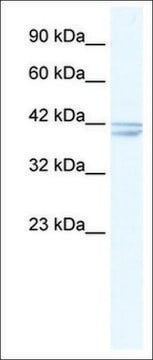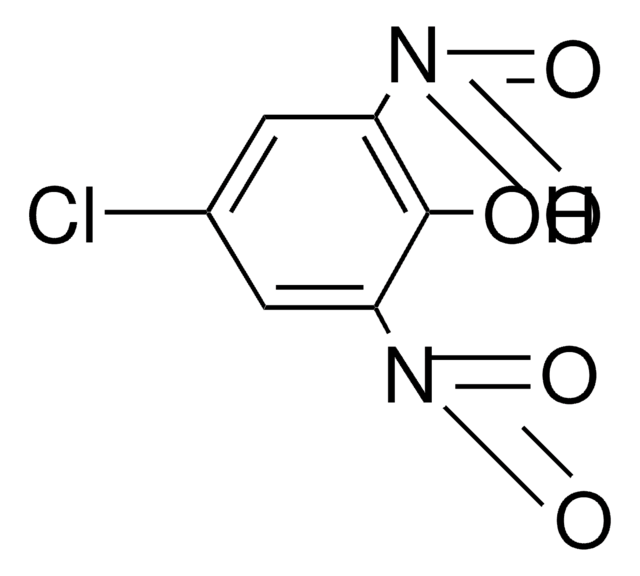MABN1833
Anti-nAChR α4 Subunit Antibody, clone 369
clone 369, from mouse
Synonym(s):
Neuronal acetylcholine receptor subunit alpha-4, alpha4 nAChR subunit, Cholinergic receptor, nicotinic, alpha polypeptide 4, nAChR alpha4 subunit, Neuronal nicotinic acetylcholine receptor alpha-4 subunit
About This Item
Recommended Products
biological source
mouse
Quality Level
antibody form
purified antibody
antibody product type
primary antibodies
clone
369, monoclonal
species reactivity
monkey, human, rabbit
technique(s)
immunofluorescence: suitable
immunohistochemistry: suitable (paraffin)
isotype
IgG1κ
NCBI accession no.
UniProt accession no.
shipped in
wet ice
target post-translational modification
unmodified
Gene Information
human ... CHRNA4(1137)
General description
Immunogen
Application
Immunofluorescence Analysis: A representative lot detected the localization of nAChR α4 subunit immunoreactivity in monkey frozen retina sections by fluorescence immunohistochemistry (Liu, J., et al. (2009). Invest. Ophthalmol. Vis .Sci. 50(3):1408-1415).
Immunofluorescence Analysis: A representative lot detected the localization of nAChR α4 subunit immunoreactivity in various areas of the rabbit brainstem by fluorescence immunohistochemical staining of free-floating sections (Centeno, M.L., et al. (2004). Brain Res. 1012(1-2):1-12).
Immunofluorescence Analysis: A represenative lot detected an increase of nAChR α4-positive neurons in the A1, A2 and A6 brainstem noradrenergic areas of female rabbits 1 hr after mating by fluorescence immunohistochemical staining of free-floating sections. The number of nAChR α4-positive neurons subsided to basal level 2 hrs after mating (Centeno, M.L., et al. (2004). Brain Res. 1012(1-2):1-12).
Neuroscience
Neurotransmitters & Receptors
Quality
Immunohistochemistry Analysis: An 1:50 dilution of this antibody detected nAChR α4 Subunit in human cerebellum tissue.
Target description
Physical form
Storage and Stability
Other Notes
Disclaimer
Not finding the right product?
Try our Product Selector Tool.
Storage Class Code
12 - Non Combustible Liquids
WGK
WGK 1
Flash Point(F)
Not applicable
Flash Point(C)
Not applicable
Certificates of Analysis (COA)
Search for Certificates of Analysis (COA) by entering the products Lot/Batch Number. Lot and Batch Numbers can be found on a product’s label following the words ‘Lot’ or ‘Batch’.
Already Own This Product?
Find documentation for the products that you have recently purchased in the Document Library.
Our team of scientists has experience in all areas of research including Life Science, Material Science, Chemical Synthesis, Chromatography, Analytical and many others.
Contact Technical Service








